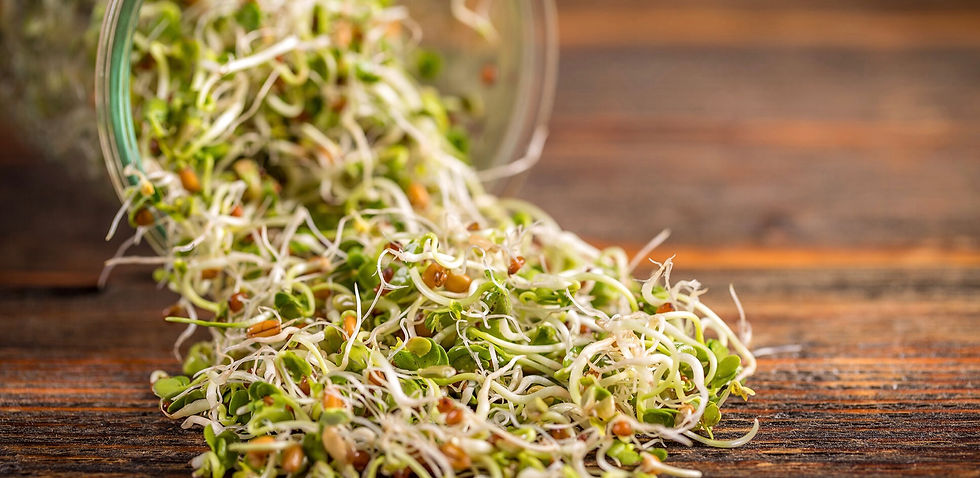Sprouting for Health and Wellness
- Ally van de Pol
- Aug 31, 2022
- 2 min read
How would you like to have a fresh nutritious source of food growing quickly and easily with minimal equipment from your kitchen worktop?

You Would? Well follow me into the World of Sprouting!
The first question is why sprout?
It's:
Nutritious
Delicious
Easy
Quick
Fun to Grow
But Just How Nutritious Are They?
Sprouts have been used as medicine since 3000 BC. Captain Cook used sprouts to make a low heat malt and because of that he didn't lose a single man to scurvy. Bean sprouts contain extraordinarily high levels of good quality protein. Mung sprouts contain more than 25% of their calories as protein (higher proportionately than in a T-bone steak). Because of their high levels of proteins, vitamins and minerals ( they contain high levels of Vitamin C and B spectrum, enzymes and phytonutrients) and are considered to be one of the most perfect foods; a complete food that is able to support human life on its own if the need arose.
What Do You Need to Start Sprouting?

A jar or two or three (like the one shown above), depending on how many you’d like to sprout at a time, a bit of counter top space and some good clean water, enough time to rinse them twice per day. You can also just use a mason jar with muslin over the top, help in place by a rubber band. Some people just use an open receptacle- think upcycling any plastic container and some seeds sprout on a plate on cotton wool or kitchen towel.
How Long do Sprouts Take to Grow?
2-3 days usually. Some sprouts take a little longer. I like mung bean and alfalfa sprouts as they are quick to grow and are reliable sprouters. Technically, you can sprout any edible seed/ grain. Make sure it's not been irradiated though.
How do You Eat Sprouts?
Add to salads, whizzed up in smoothies or juiced.
Just give them a whirl!
Ally van de Pol is a Certified Healing Diets Coach, Iridology Consultant, Herbalist and Naturopath in training. She can be contacted at ally@dragonfitnessandcoaching.com.


Comments